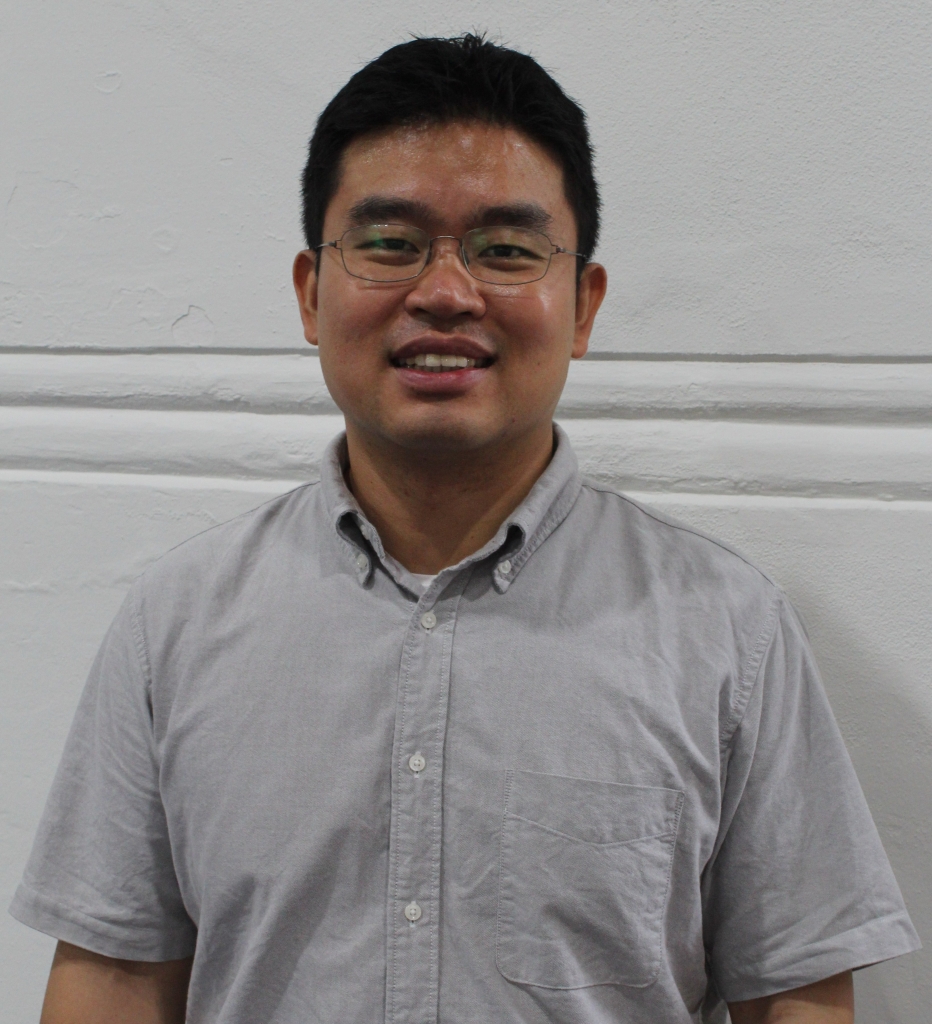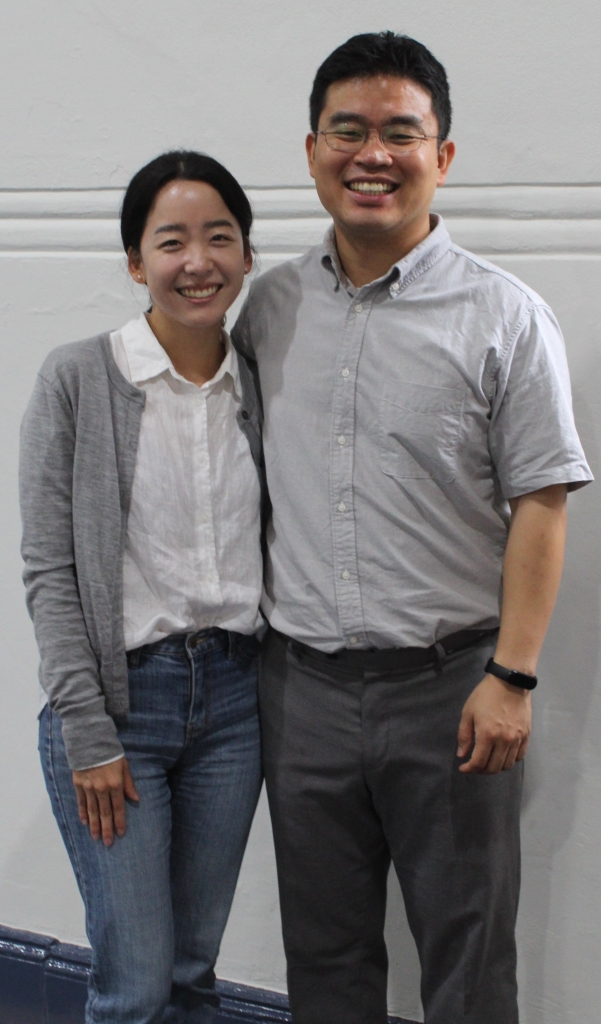
What is the cost of growing up? This may not be the question we normally ask when thinking about our progression to adulthood. Yet I have observed that a child’s identity and worldview are primarily shaped by their family of origin. Even the tiny mannerisms that escape our faces have their origins in the people who nurtured us in our earliest years. So, whether we like it or not, the task of becoming our own distinct person has a cost for each of us, particularly if our worldviews clash with those of our parents.
Hani

So it was for Hani. She grew up in what she would say is a typical Korean home. “My parents were very hard working. 60 years ago, Korea was poor, and like many other parents, they wanted to provide us with greater security.” She uses the term “Kirogi appa” as a term that applies to Korean fathers like her own. It literally translates as “Goose Dad”, referring to the practice of a Korean father who sends his family to an English-speaking country for a better education and lifestyle while he continues to work in Korea.
Living abroad
The family moved back and forth between Korea and other countries before Hani turned 8, after which she spent the next thirteen years in the UK with her mother, brother and twin sister acquiring the best education her parents could afford. “My Dad was with us initially in our travels, but we hardly saw him. He was in the UK for a short time but went back to Korea. He retired about four years ago and was quite successful in his career. He did this all by his own effort.”
A major change
Hani returned to live in Seoul at 21 after completing her Science degree from the Imperial College in London, where she lived with her family.

However, she experienced a major change while studying in London. “I became a Christian.” Hani explains the radical nature of this for herself, “I came from an Atheist family. They don’t think that believing in God is rational.”
I would often ask myself why they were like this for no apparent reason
Hani became a Christian in the second year of her study at University. She refers to two friends who influenced her decision as “angels”. “I became a Christian through them. They are both Korean. Their qualities made them stand out. Hard working, warm and selfless. I would often ask myself why they were like this for no apparent self-serving reason. This question was in my head for a year.”
Returning to Korea

Even though she attended Bible study with her friends, she didn’t feel free to attend church until her final year of University, when her mother returned to Korea. When Hani herself returned to Korea, she did manage to attend a church in Seoul, even though it was somewhat tense with her family. “I decided that going to church was a priority for me. My family considered weekends very important, so this caused some difficulty. Looking back though, I do believe that I was still very much under my parents’ control.”
My parents were against our relationship
But the situation that brought her faith into sharp relief with her parents’ worldview was her decision to marry Jonas. “My parents were against our relationship.”
Jonas

The opposition came from the fact that Jonas was not the type of husband that would provide the lifestyle Hani’s parents wanted for her. Neither his background nor his standing as a professional Christian Minister passed the test. Jonas’ parents did not have a higher education, and in Korea, as Hani explains, “99% of Ministers do not earn a good living. It is only those who lead the Mega churches.”
I thought that Christians are crazy people
Asked about the pathway that led him to becoming a Minister, Jonas says, “My mum forced me to church when I was in primary school. I really hated it! People were praying in tongues and when I first saw that I thought that Christians are crazy people.”
Faith and future decisions
When he was old enough to go to church by himself, he would go elsewhere and lie to his mother. But when he was 17, he went to a youth camp and was asked to come to a prayer meeting at 5am. “I fell asleep.” Shortly after waking up, he started to spontaneously pray, and “everything that I had heard up to that time just made sense. I believed in Jesus. That is how I became a Christian.”

As Jonas approached his latter years in High School he wanted to pursue a career in professional sports. “I was approached by a Pro Soccer team to join their youth program, but they wanted money, which we didn’t have. I also thought about Sports Education at University, but in my final year of High School, I decided to become a Pastor.”
Was your mother happy? “No. My mum did not want me to be poor again. But after ten days, she gave up arguing with me and said I could do what I wanted.”
First experiences as a Pastor
Jonas’ first experience as a Trainee Minister did not end well. The church where he was assigned as a Youth Pastor, taught what Jonas refers to as a “false prosperity Gospel.” “They forced me to teach and preach about making money. I said no and I taught people about the real Gospel. Then they kicked me out.”

For Jonas the message of Jesus is not about making us rich and life being successful, but about finding redemption and restoration from our sin. (The church he was asked to leave was Presbyterian. I learned from Hani and Jonas that 90% of churches in Korea are Presbyterian, even though they belong to many different denominations.)
It was difficult for Jonas to leave. “I loved the people I taught. They lived in a poor area and many of the children were from single parent homes. I considered them like my nieces and nephews.”
Time abroad
To get over the shock of leaving the church, Jonas came to Sydney to stay with his sister and recover from his experience. While in Sydney, he learned of an opportunity to serve as a missionary in Mexico to a Korean congregation.

So, for the next three years Jonas worked in a remote part of Mexico as a Pastor. “I wanted to see how God loves other countries. I served my small Korean congregation and I brought the Gospel to Mexican people.”

After this time, Jonas returned to Korea to complete his theological training and became an Assistant Minister in the church where Hani attended.
Hani and Jonas

Hani refers to their church in Seoul as medium sized, “roughly 1,000 people. It’s medium in the sense that we could recognise everyone, getting to know people’s faces after one or two years, even if we didn’t know their names. Jonas came in my fourth year there and Pastored the teenagers, while I was part of the University aged group.
We had such a fun time
For a year we only said ‘Hi’. We got to know each other when I joined the teenager group as one of the teachers. We had such a fun time.”
The Cost
As their relationship blossomed, the inevitable path for them was marriage. But for Hani, the decision to marry meant so much more for her. “Being together with Jonas meant a lot of things. It meant going head to head with my family, which I knew would be the case. At the time, in terms of my relationship with God, this was the missing piece.”

“All the while as a Christian I lived trying to appease my family, but more and more I realised that we would eventually clash because their values and the life they envisioned for me were opposite to what I believed the Bible was teaching me. I couldn’t make them happy and at the same time follow Christ. It was and still is a journey of me becoming independent and following my choice as a Christian.”
Major transition point
I paused for a moment as Hani described what clearly was an emotional memory for her. Hani recognised that it must have been very difficult for her parents, acknowledging their sacrifices for her and her siblings.
It was truly painful, more than I had ever imagined
Yet for her, the relationship with Jonas became a major transition point that enabled her to move forward and leave her childhood relationship behind, while also affirming her new identity as a follower of Christ. “It was truly painful, more than I had ever imagined. My parents didn’t want to let me go. It was difficult for all of us.”
How did she view her faith at the time? “What helped me through that time was a real connection with Jesus. The fellowship with him was so strong and real. I realised that I was a daughter of God and that was all the identity I needed to walk through those difficult days.”
The future in Australia

To finally break the parental hold on Hani, they decided to leave Korea. “It was very evident that I had to leave. I realised that even though I was 28 their hold on me had not changed at all from the time I was much younger.”
Hani came to Sydney to commence a PHD program in computational biology. Jonas followed shortly afterward. His pathway to independence was much more straightforward. He simply says that “I had to do everything myself, my University degree, all my decisions to go to Sydney, to Mexico were made by me. My parents didn’t assert their right like other Korean parents. In this way, I am more like a Westerner.”
An unexpected pathway

Even though the plan was for them to eventually return to Korea, an unexpected opportunity arose. Jonas was offered the role of Pastoring a Korean speaking church in the Inner West of Sydney. For both, this will be quite a challenge as they are looking to plant the church themselves.
we intentionally wanted to attend English-speaking churches and learn how Christians serve God in a post Christian world
Their vision is clear, “When we came to Australia we intentionally wanted to attend English-speaking churches and learn how Christians serve God in a post Christian world. We feel that during our time at St Oswald’s (Haberfield) and St John’s (Ashfield) we have learned so much.”
They want to turn this learning to helping fellow Koreans in Sydney, “there is a lot of hurt among Korean Christians living here. We think that there has been a generation which has lost the connection to living out the Gospel in the church.”

Jonas and Hani have commenced the Mathetes Community in Ashfield with the desire that it become a Gospel-centred church. (Mathetes is the New Testament Greek term for “disciple”.)
That is the one thing that we have both learned…
Having passed through their various transitions to come to this point, their outlook is clear. “When we look at the different cultures we have experienced from Korea, to Mexico to Australia there is a lot of contrast. Mexico is so poor. In Australia everything is abundant. A lot of its policies are people-centred, so life is stable. Everything is here for you. In Korea everything is fast, quick and competitive. But there is a lot of anger, especially among young people. But no matter where you come from, whether you are rich or poor, you still need Jesus. That is one thing we have both learned. And we hope Jesus will continue be at the centre of our lives.”

To learn more about the Mathetes Community, click here.

Thanks for this lovely insight into what has led Hani and Jonas to being church planters in Australia. It helps me to both support Hani and Jonas in prayer and better appreciate the work they are doing.
LikeLiked by 1 person